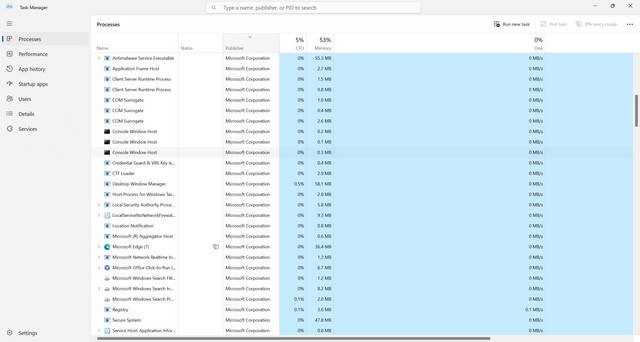When you open the Windows Task Manager, you may come across a process called “msiexec.exe” running in the background. This executable file is an essential component of the Windows operating system, responsible for managing the installation, maintenance, and removal of software packages in the MSI (Microsoft Installer) format. In this article, we will delve into the details of msiexec.exe, its functions, and whether or not it should be removed from your system.

Understanding Msiexec.exe
Msiexec.exe is a legitimate Windows process that plays a crucial role in software installation and maintenance. It is responsible for executing the instructions contained within MSI files, which are database-like files that contain information about the installation and configuration of software packages.
When you run an installer file with the .msi extension, msiexec.exe is invoked to interpret the instructions and perform the necessary actions to install or uninstall the software. It ensures that the installation process adheres to the rules defined by the MSI package, such as copying files, creating registry entries, and configuring settings.
Should I Be Concerned?
Seeing msiexec.exe running in the background of your system is completely normal and should not raise any immediate concerns. It is a legitimate Windows process that is required for the proper functioning of software installations and updates.
However, like any other executable file, msiexec.exe can be exploited by malware to carry out malicious activities. Malware authors may disguise their malicious code as msiexec.exe to evade detection. Therefore, it is crucial to ensure that the msiexec.exe process running on your system is legitimate and not malware.
Verifying the Legitimacy of Msiexec.exe
To verify the legitimacy of the msiexec.exe process running on your system, you can follow these steps:
- Open the Windows Task Manager by pressing Ctrl + Shift + Esc or right-clicking on the taskbar and selecting “Task Manager.”
- Switch to the “Processes” or “Details” tab, depending on your Windows version.
- Locate the msiexec.exe process in the list.
- Right-click on the process and select “Open File Location.”
- A new File Explorer window will open, displaying the location of the msiexec.exe file.
- Verify that the file is located in the C:\Windows\System32 folder. If it is located elsewhere, it may be a malware imposter.
If you suspect that the msiexec.exe process on your system is malicious, it is recommended to scan your computer for viruses and malware. Malwarebytes Free is a reliable and effective tool for detecting and removing malware.
Common Issues with Msiexec.exe
While msiexec.exe is an essential component of the Windows operating system, it can sometimes encounter issues that affect its functionality. Here are some common issues associated with msiexec.exe:
- High CPU Usage: In some cases, msiexec.exe may consume a significant amount of CPU resources, causing system slowdowns. This can occur when an installation or uninstallation process gets stuck or encounters errors. Restarting your computer or terminating the msiexec.exe process can help resolve this issue.
- Error Messages: If there are problems with the MSI package or the installation process, msiexec.exe may display error messages. These messages can provide valuable insights into the cause of the issue and can be used for troubleshooting.
- Corrupted MSI Files: If the MSI file used for installation becomes corrupted, msiexec.exe may fail to execute the installation properly. In such cases, obtaining a new, uncorrupted copy of the MSI file or contacting the software vendor for assistance is recommended.
Conclusion
Msiexec.exe is an integral part of the Windows operating system, responsible for managing software installations and updates. It is a legitimate process that should not be removed from your system. However, it is essential to verify the legitimacy of the msiexec.exe process running on your computer to ensure it is not a malware imposter.
If you encounter any issues related to msiexec.exe, such as high CPU usage or error messages, it is recommended to troubleshoot the specific problem or seek assistance from the software vendor. Regularly scanning your computer for viruses and malware using tools like Malwarebytes Free can help ensure the security and integrity of your system.










